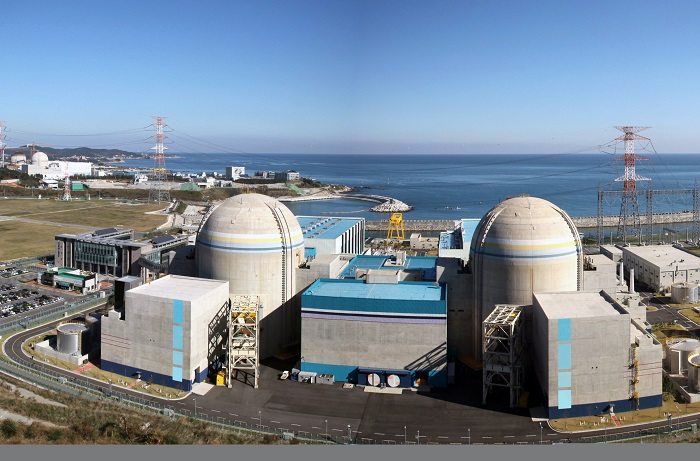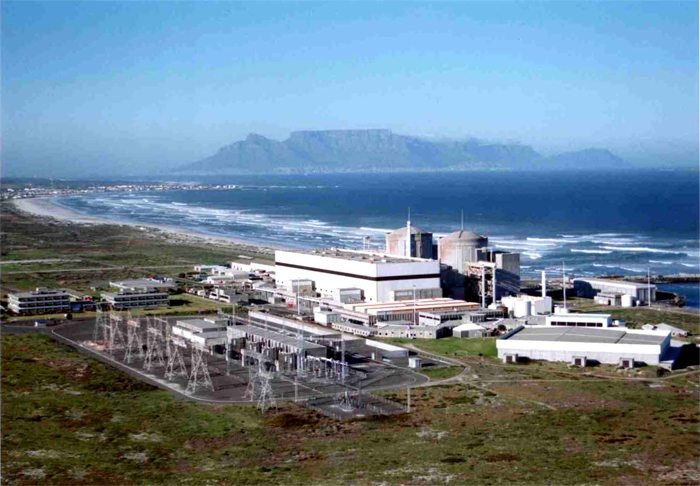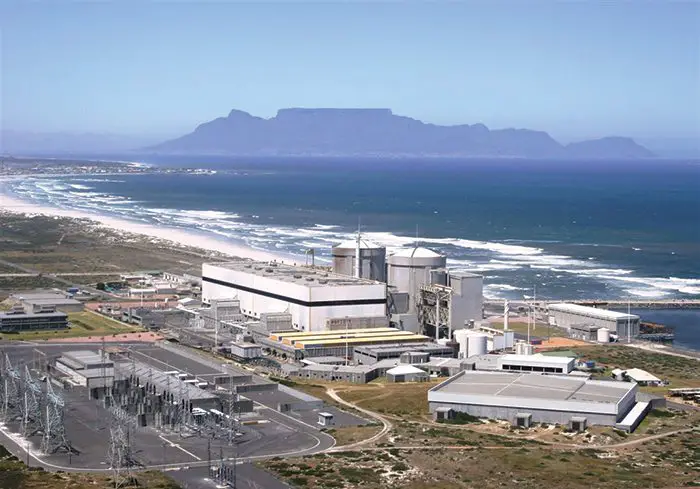Nuclear power development in South Africa produces about 5% of South Africa’s electricity. This comes from the two reactors at the Koeberg nuclear power plant. Spent fuel is disposed of at Vaalputs Radioactive Waste Disposal Facility in the Northern Cape.
New nuclear power construction has been scaled back, and it is now thought that it won’t happen before 2030. According to the 2010 Integrated Resource Plan (IRP), six to eight new nuclear reactors would be constructed by 2030, costing approximately R1 trillion, and would add 9,600 MWe of new nuclear power capacity.
Due to lower demand projections and higher capital costs, an updated proposal IRP that was published in 2016 set a much slower and lower nuclear target. According to this revised IRP, the first brand-new nuclear power plant would only need to go online in 2041.
The 2019 Integrated Resource Plan (IRP) for South Africa anticipates a 20-year life extension for Koeberg to 2044 as well as a postponed nuclear new build program due to the “marginal cost of [nuclear] generation, in comparison to other options,” with a potential for new capacity construction after 2030.
South Africa’s nuclear plan to commence in earnest

South Africa’s nuclear plan now looks promising following a procurement program that is set to officially commence on September 30, 2016. The move will pave way for the official start of a nuclear plant that has been hit by political, and legal hurdles and controversy.
Tina Joemat-Pettersson, South Africa’s Energy Minister revealed the latest milestone in Parliament on the 7th of September, 2016 when asked for an update on the controversial 9.6GW nuclear new build program. The Minister told the Parliament that the Department of Energy will release its request for proposals on September 30, which will “test the market”.
Currently, South Africa has one nuclear power station – Koeberg in Cape Town – and this program is expected to effectively see another three or four power stations built either near Koeberg or near Jeffrey’s Bay in the Eastern Cape.
Earthlife Africa and the Southern African Faith Communities Environment Institute (Safcei) are actively engaged in legal proceedings against the Department of Energy over agreements signed with Russia’s nuclear firm Rosatom ahead of the official procurement process.
However, legal documents indicate that South Africa did sign a nuclear deal with Russia. Apparently, it is claimed that the Russian agreement was entered into unlawfully but makes (an) internationally binding commitment to buy a fleet of nuclear reactors from Russia.
According to Safcei’s Bishop Geoff Davies, Safcei and civil society have been trying to communicate with the South African government for years regarding the best way ahead for the nation’s energy future. Bishop Davies stated that clear evidence is available that, nuclear is now the most expensive and unwise form of energy, particularly in South Africa with the best of renewable energy resources in the world.
He further lamented that, for over five years, letters addressed to President Jacob Zuma have been unanswered and unacknowledged. The unanswered letters have created deep suspicions of motives behind the government’s commitment to nuclear energy.
Gordon Mackay, the Democratic Alliance spokesperson on energy, cited the above case of “procedural irregularity”, which is currently before the high court in the Western Cape. He added that it is a worrying situation for South Africa as the nation enters the so-called rating season, which will determine SA’s credit rating by end of 2016.
These issues will be made clearer if the Department of Energy updated its Integrated Resource Plan – which has not been published since 2010. It should be published every two years.
Read Also: Heineken’s Sedibeng Midvaal brewery solar power plant launched in South Africa
Professor Anton Eberhard, advises the government on energy policy regarding the program that it will be an unnecessary financial burden in the country. Thus Prof. Eberhard has called for the power sector to be restructured, with a focus on independent power producers that include renewable energy.
“We need to follow best international practice by separating state-owned power generation from transmission and system operations so that the latter can procure and dispatch both state and private power in a fair and transparent manner,” said Prof. Eberhard.
South Africa’s nuclear plan was mulled over several years ago but practical implementation has been delayed from time to time.
Reported on 23rd September 2014
South Africa set to get a nuclear power plant funded by Russia

South Africa is set to get a new nuclear power plant, following the signing of a cooperation deal with Russia recently. Both sides noted that the nuclear power plant will have a production capacity of up to 9.6 GW based on Russian Technology, by 2030. The announcement was made during an International Atomic Energy conference in Vienna this Monday.
The South African Minister for Energy, Tina Joemat-Pettersson, noted that the agreement opens up doors for South Africa to access Russian Technologies, infrastructure development, and funding, while at the same time providing a solid and proper platform for future collaborations.
It was also noted that the deal will enable the construction of eight nuclear power plants/units, something that would result in the creation of jobs and bring in orders amounting to USD $10bn to local industrial enterprises.
Earlier on, South Africa had noted that its focus was on coal, hydro, and gas for energy, and construction of nuclear power plants might be delayed. This is due to the fact that the country was facing power problems because of a lack of investment in new power plants for over a decade.
At the moment, the state utility Power Firm Eskom is in the process of finishing new power plants that include Kusile and Medupi, massive coal-fired firms with a combined capacity of about 9500MW.
Some of the companies that have shown interest in the construction of nuclear power plants in South Africa include China’s Guangdong Corp Nuclear Power Holding Corp, Toshiba Corp, and the Korean Electric Power Corp.

